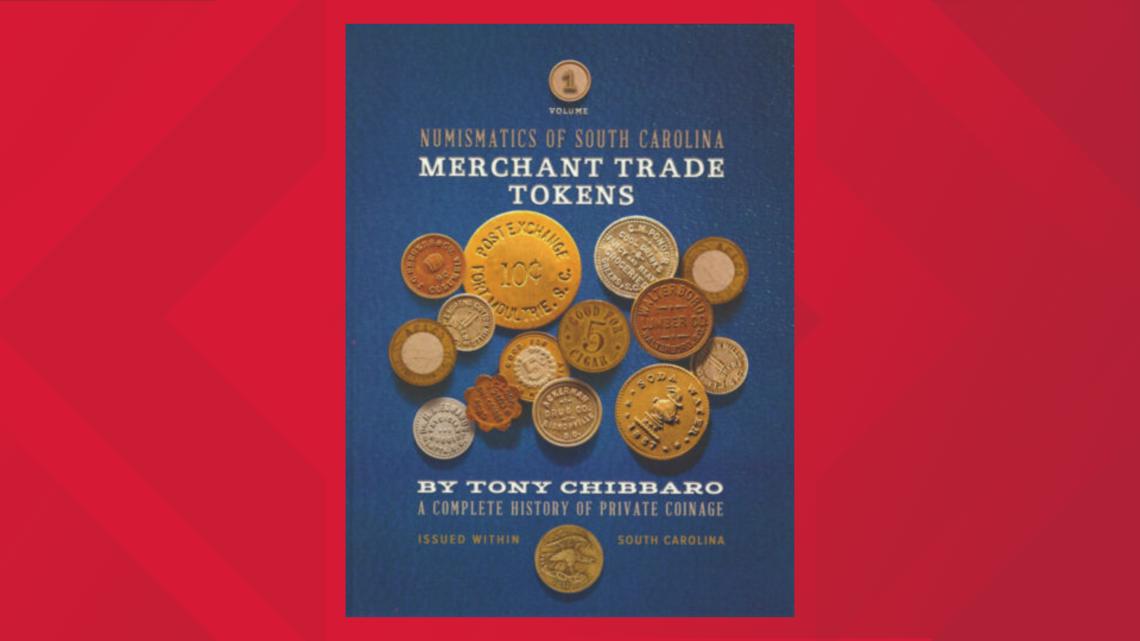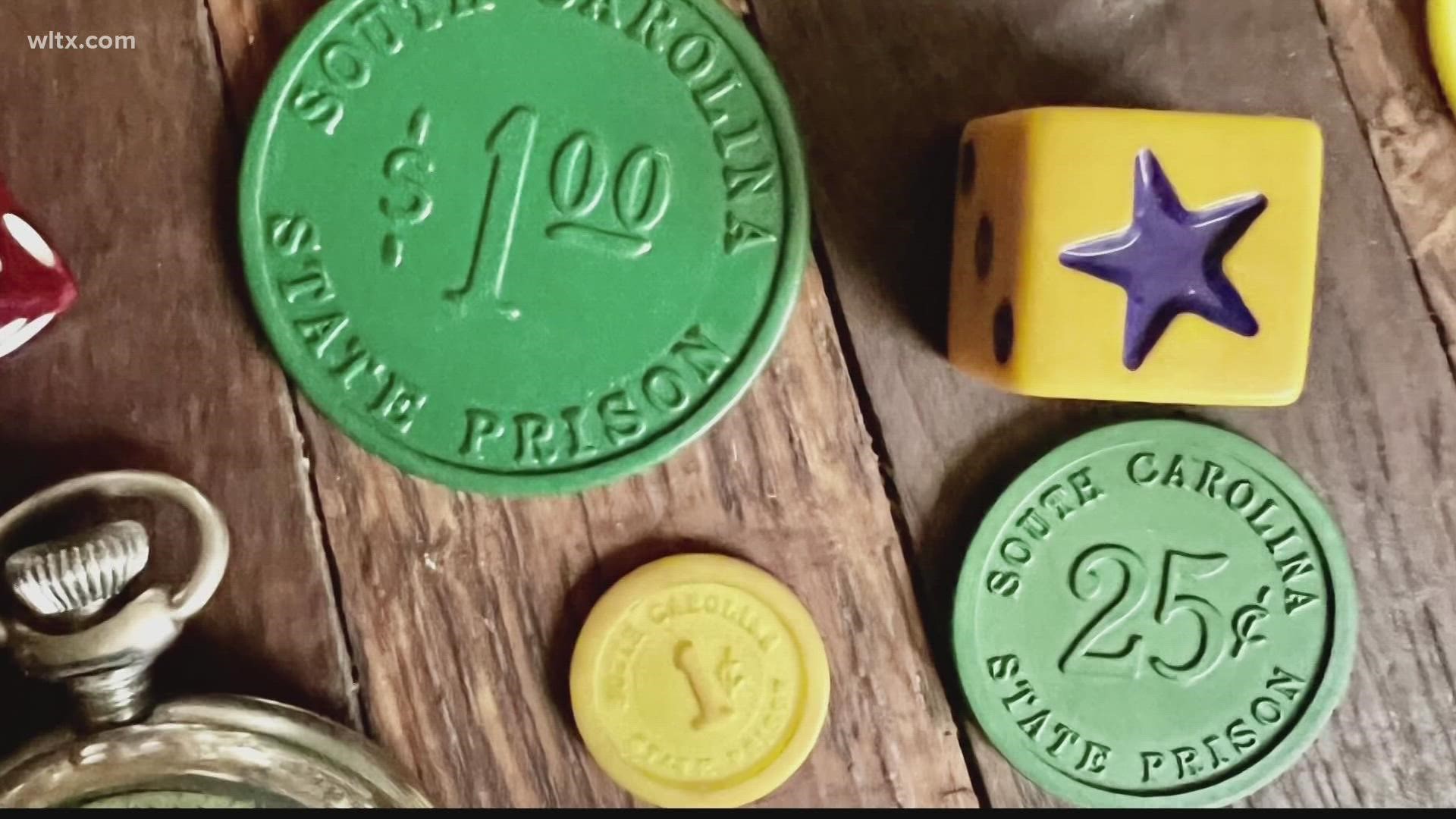COLUMBIA, S.C. — For over twenty years, inmates in South Carolina prisons used plastic yellow and green tokens as money.
The idea was to keep actual money out of prisons.
"It worked pretty good for a while," said James L. Harvey former SC regional director of South Carolina prisons. "Even if we wanted to get a cold drink, we would have to use them."
Local coin and token collector Tony Chibbaro has written the end-all book on South Carolina tokens called "Numismatics of South Carolina Merchant Trade tokens." In the book, Chibbaro details the rise and popularity of tokens in the state.


Many a general or grocery store or soda fountain had some of their own tokens produced to give away a cold glass of Coca-Cola or cents off something purchased in the stores.
Chibbaro explains that people think that most of the area cotton mills paid their workers in script or tokens. He says that's only partly true.
"Most workers working in mills in the area were paid in cash," he said. But, some folks couldn't make the money stretch for two weeks, so if they wanted to borrow on their next week's pay, they would get paid in tokens from the mill. This money would have to be spent in the company stores.
Most of the coins, Chibatto said, were made out of aluminum, and the workers called them "Loonies," perhaps from what they were made of, but it worked both ways he said. "Folks would have to be 'loonie' to take less pay or pay that could only be used in the company store."
Chibatto says the prison tokens are another story.
"The rare ones are metal," he said. Those can go for as much as $3-4,000.00 for collectors. The plastic ones, "Usually three or four dollars." Chibbatto said he sells many of his tokens on eBay.
Chibbatto tells a story of an antique store just down from the prison after it moved to Broad River Road and inside he went.
He said that he found a huge trunk at the store and the inside was half-full with yellow and green tokens of all denominations, from a penny to a nickel, dime, quarter, and a dollar. He said he bought a whole cigar box full and jokes that he still has a pile of them left.
"Boy, these take me back," said Harvey, who was at one time the deputy warden at Central Correctional Institution. Harvey was also the first warden of Kirkland Correctional Institution, which opened in 1975.
"These were in use when I was working," Harvey said. "They were an attempt to stop contraband from coming into the prison." They were trying to take cash out of the inmates' hands.
"It worked for a while," Harvey said. "It worked for 20 years."
And for those who think they might have been used other ways, the former deputy warden just chuckles.
"This would have made a pretty poor weapon," he said handling some of the tokens. "They had other things. We had a big industrial complex at CCI ... shoes, metal-making ... so they had access to metal better use of that than these."
Harvey remembers even the staff had to use the coins.
"If we wanted to get a cold drink, we'd have to use the tokens," he said.

